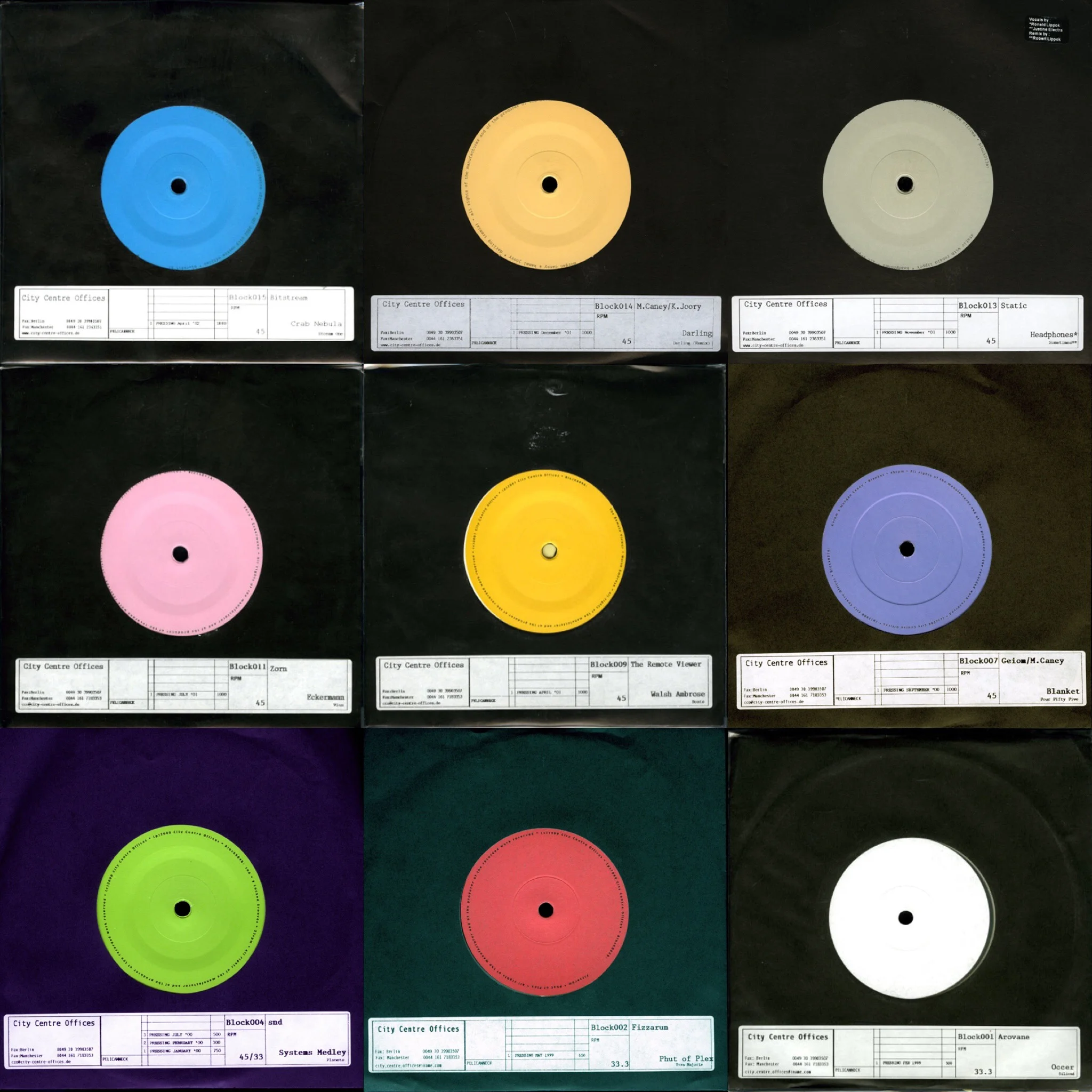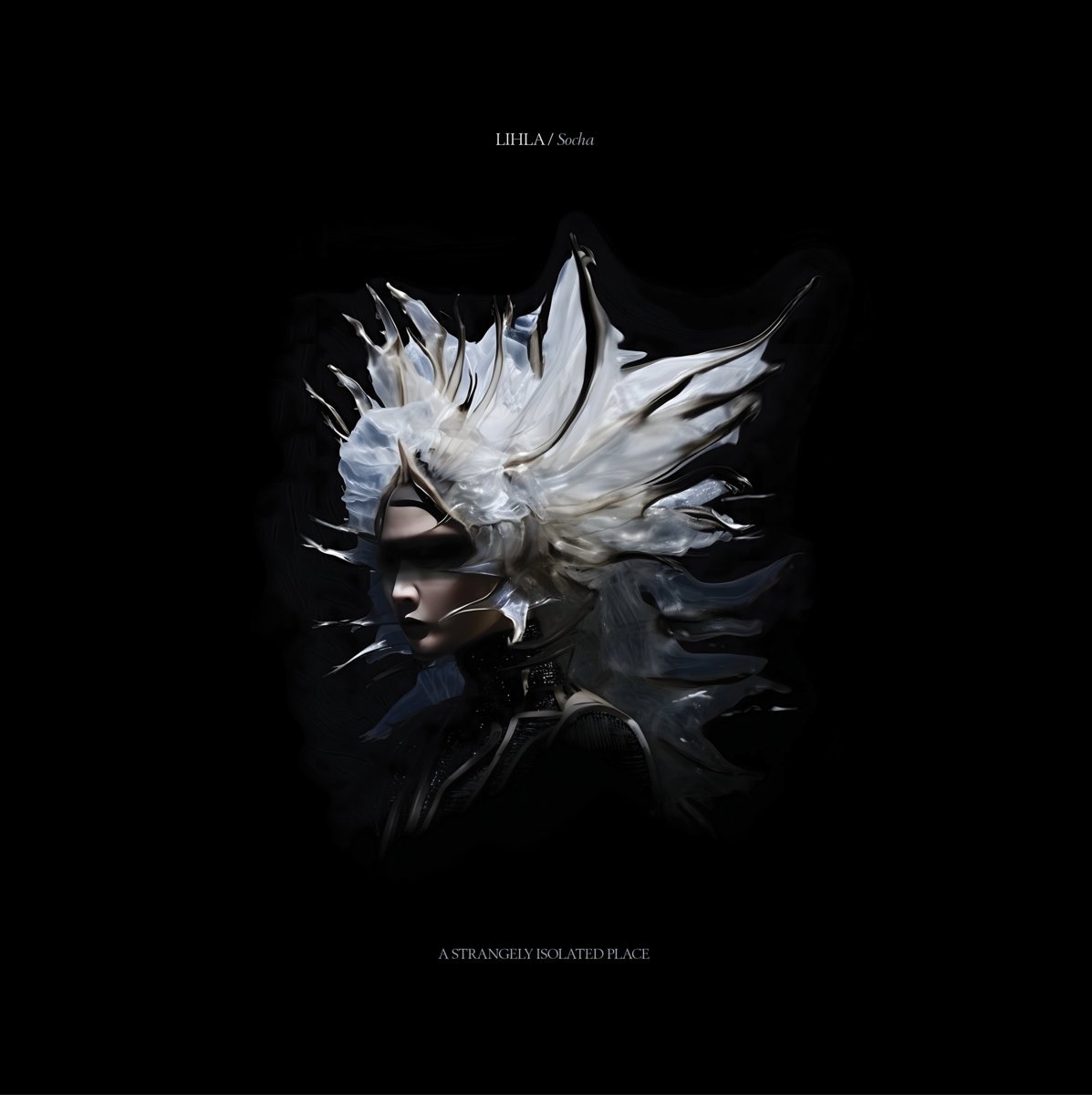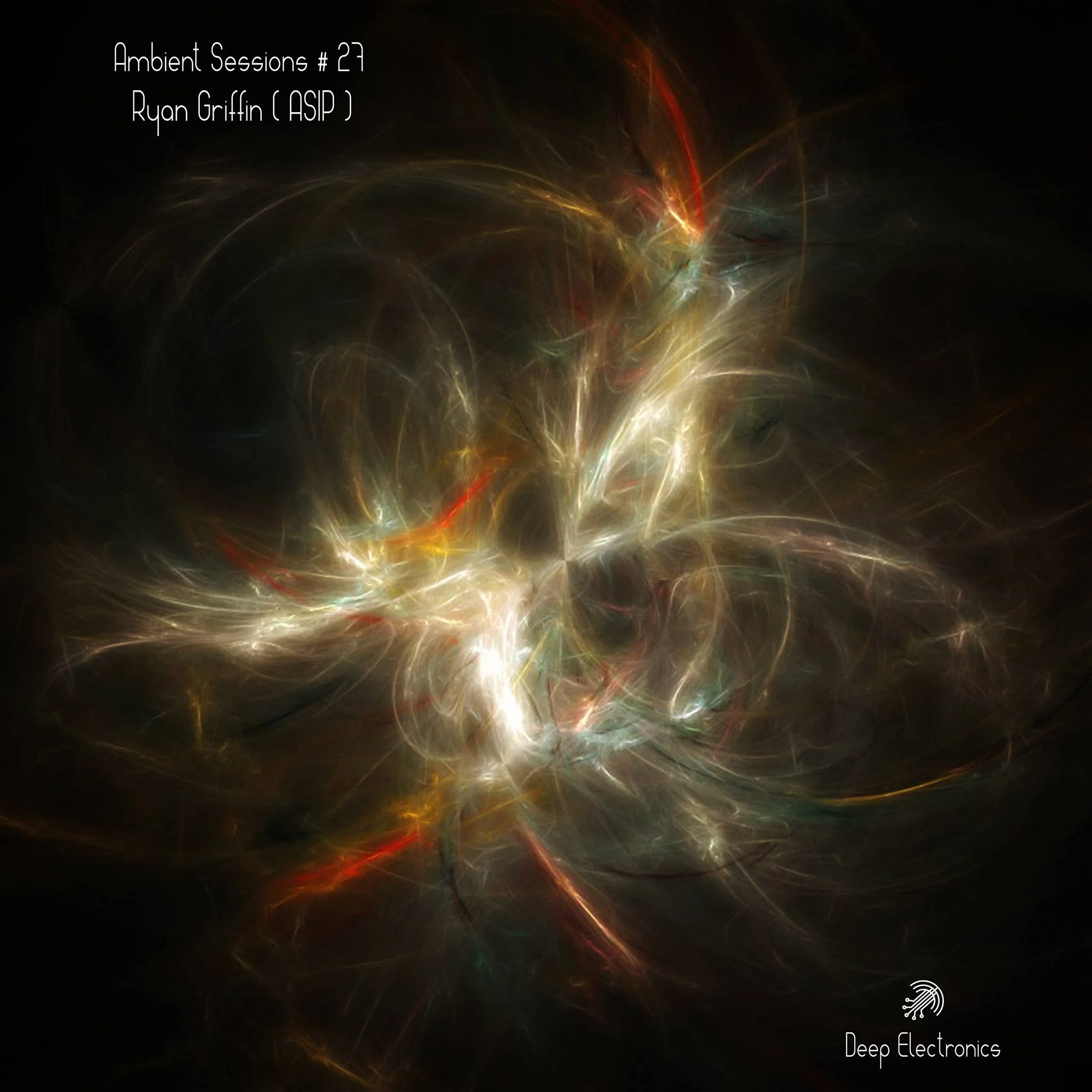Countless hours have been spent exploring and collecting the music to be found on the infamous City Centre Offices label. Should you have missed it, even the ASIP name is a rip of an album by one of CCO's most successful artists. The label's impact and inspiration on the music here at ASIP, is second to none.
CCO pushed a style of music that was relatively new at the time and the label went on to host many of the names that have graced the blog pages and even the releases here on ASIP including, Ulrich Schnauss, Arovane, Herrmann & Kleine, Christian Kleine, Bitstream, Miwon, Casino Versus Japan, Xela, Marsen Jules, The Gentlemen Losers... I could keep going.
These names were brought together by a group of friends between two thriving music cities of the late '90s; Berlin and Manchester, in what was perhaps the worlds first truly international, independent (DIY) electronica label. But at the time, they didn't know of the impact they would eventually have on the music world.
Unfortunately, the end of CCO is here. You may have already thought that CCO was long gone, and it was, until label co-founder, Thaddeus Herrmann decided to release just one more record under its mighty guise this year. That record, a sublime slice of electronica by Boy Robot titled Final Transmission, echoes CCO in its purest, and arrives March 24th 2017.
Now felt like a good time to look back on the label and celebrate its success and last hurrah, with label co-founder Thaddeus Herrmann. From his home in Berlin, in between many emails and his work on DasFilter, the CCO mastermind took the time to respond in depth to a few questions we sent his way, looking back on the might of electronica's finest, City Centre Offices.
As one of CCO's biggest fans, I pulled together some of my favorite tracks from (& associated with) the label in this Spotify playlist, to accompany your read and remind us all how brilliant, timeless and pioneering their catalog truly is.
Did you know at the time that the sound of CCO was so unique and forward-thinking?
Thaddi: First and foremost: It’s great to hear that what we did or tried to achieve over the years left such a positive impression with people. Musically, there was no master plan. We had a clear idea though which got the label started: We wanted to try to marry the 7" format with electronic pop music.
If you think back to the late 1990s, electronica was very popular, “PowerBook” music as I call it, I’m aware this may be oversimplifying, but you get the idea. At the same time, there was a renaissance of the 7" format. Many new labels and imprints were curating this exact type of electronica I was describing.
The 7" fascinated both Shlom Sviri, my label partner, and myself. We’d grown up with that format when we were kids. You’d hear a song on the radio, go to the shop and pick up the 7". It was both cheap and a cheap thrill, so to speak. Two tracks, hardly ever taking more than ten minutes of your time. A moment of excitement, a little something, a treat, a way to escape from whatever it was you were doing. This was exactly what we wanted to resurrect - the excitement.
We both felt this was somehow missing in the electronica and 7" scene at the time. We thought that maybe we could contribute something to the mix. It was not supposed to be a serious operation, let alone a business. We just wanted to put out 7"s and not lose money.
I hardly ever go back to the CCO catalogue these days, but I do hope that at least some of the releases stand the test of time and don’t sound dated. If that’s the case, I guess we’ve achieved something - something which might have been triggered by our original approach: pop music on the 7" format.
From what I know, CCO was conceived between a few friends in Berlin who simply wanted to release music. In your own words, how did the label come about?
Thaddi: This is gonna be a long story, but I'll share it anyways, because it has a recurring theme to it which has always been very important to us since we started the label: friendship.
A very good friend of mine, who I’d known since the 80s here in Berlin (and who I was also in a band with), went to Manchester in the mid-90s to study for a year. There, he met another German guy, Oliver, who was also at University. As far as I remember, Oliver knew Shlom Sviri (CCO co-founder) somehow, probably through a room mate. A couple of years later, my mate was back in Berlin and had a garden party – a yearly tradition. Shlom and Oliver came over, and this is how I met them. Shlom had just finished Uni and was about to open Pelicanneck (a record shop in Manchester). He had the insane idea of booking my band to play the opening party of the shop. Of course we went, and stayed with him for a couple of days. We were talking about music all the time and the idea of the label came up. It was one of those "what if"-moments, one which is usually followed by something like: fuck it, let’s give it a try. So we did.
Oliver was the third guy, taking care of the design. Being a student of architecture, he had a brilliant approach, making the 7"s look and feel very precise, technical and bleak, yet personal at the same time. We couldn’t have done that individually. It was a team approach, again, it was all about friendship. Every 7" was assembled by hand, which was quite common in those days, yet I believe we went the extra mile; sourcing the black sleeves from one company, the large stickers from another, the small stickers from yet another. Even my mom chipped in, putting stickers on black sleeves in front of the TV.
Did you have a goal for the label when setting out?
Thaddi: It was clear from day one that it could be anything. We just needed to like the tracks. What sounded like a big promise in the early days, really transpired later on, I guess, when we were working with bands like the Florida-based hip hop group Cyne (a story for another interview), or Italy’s best indie band Giardini Di Miro. We moved on soon enough, while other labels were still stuck with that electronica sound. I don’t mean this in a disrespectful way, we just felt the urge to move on. Or maybe we were just always interested in other things musically as well.
How did the label name originate?
Thaddi: It took us some time to come up with the name City Centre Offices, and I don’t remember who’s idea it was in the end, but it fitted quite well. It was an international label from day one, run from two countries, UK and Germany, from two cities, Manchester and Berlin. We had this crazy idea that if the label lived on for more than one release, each artist would open up a new city centre office in his or her home town, creating a network of like-minded people. Years later, we did a website based on this idea and also had t-shirts made with an abstract map of the world, our CCO world.
“Until the very end, we never had offices, btw.”
As it turned out, the label did live on for more than one release. Not just that, people really seemed to like it. We started to receive demos and quite early on, we decided to give up our 7"-only policy and look into other, more established formats. 12"s and albums. This was when things started to get more serious.
Suddenly, we needed of think of designs on a whole different level, about promotion, royalty statements and serious distribution. Basically, we needed to put much more money into a release, deciding how to spend it in the most efficient way. We hardly knew anything about how these things were done, let alone how to do them properly. We didn’t care, we just wanted to release the great music which was piling up on our desks. And, yet again because of friendship – we were able to cope with the initially overwhelming tasks. Until the very end, we never had offices, btw.
Did you have to balance CCO duties with other jobs?
Thaddi: I’m a journalist by trade. During University, I was already working for the radio and later on, I joined De:Bug, a monthly print magazine for electronic music and culture, as an editor. This was my main job. CCO took up more and more time, but I never wanted to do it full-time. It just didn't feel right, and I still think that was the best decision.
What was Berlin like back then for starting a label? Was it hard?
Thaddi: It was surprisingly easy, mainly because I was lucky enough to have a lot of contacts and friends who were happy to help. If you decide to start a label, you need basically three things sorted: mastering, pressing and distribution. Distro was the easiest, since Shlom had his record shop and took care of the UK side of things. But what about other countries? What about Berlin? I was friendly with the guys at Hardwax over here and as well as being a regular customer, I had interviewed some of them about their own music whilst working for a music well respected music magazine based in Berlin at the time, and somehow this opened a door.
Reviewing early Arovane records on DIN, a label operated by two guys working at Hardwax, helped, too. They were up to distribute our 7"s, which really helped. Their reputation pushed the label from day one. If you ask me about who to trust in this industry, they are among the very few people who I’d mention. A couple of years ago, I started working with them again for the label I run on my own these days, and they're still the best. So trustworthy, so on point. Without the support of Hardwax in the early days and Thomas Morr of Morr Music coming in a little bit later, CCO probably would not have survived that long.
“In order to get heard, you need to be everywhere, first and foremost: online. If vinyl is right for you, look into your options. Make it special somehow. And try to offer it as cheap as possible. Make it accessible.”
Thaddi: But how to press up a record? And fucking where? I remember calling a pressing plant in Germany, asking for a quote. The agent on the phone literally hang up on me. We emailed a pressing plant in the Czech Republic, infamous for everything. Their vinyl was poor quality and it was a somewhat dodgy business in general. They'd press up anything if you paid in advance. And they didn’t care about collecting societies, mechanicals to be paid etc. Bootlegs? Check. Nazi scum shit? Why not. Electronica 7"s? Of course! Stefan Betke aka Pole was kind enough to master the first three 7"s before we sent off the masters to the Czech Republic. We hoped for the best and were disappointed rather quickly. Things needed to change...
I had a friend who had just started a label and in the process stumbled across a woman who’d just started a manufacturing broker service called "Handle With Care". A company which is blossoming today, taking care of big productions for both major and indie labels. Back in the day, she was just starting up on a very small scale. I was her third or fourth customer. She took care of our records from then on, putting them through proper pressing plants, giving us more options and quality control. The pressing plant in the Czech Republic is still there. Universal Music is one of their biggest clients. I wonder if they know their history, but mainly I wonder how they survived.
Running a label myself, I’m interested in how the vinyl process happened back then and how you come to work with Loop-O?
Thaddi: As I mentioned before, the first three releases had been manufactured in the Czech Republic – a quick and dirty job, but at least we had records. With the fourth release, we were facing a problem. It was a 7" by .snd. Shlom was very friendly with them, great guys who somehow felt a similar vibe between the early 12"s on their own label and CCO. They had this idea for a 7" consisting of a regular track on one side and some loops on the other. Loops need to be perfect. Endless. So, obviously the plant in the Czech Republic was no option.
The problem was that back in the day, they could only handle DMM – Direct Metal Mastering. They could not process regular master discs, cut on dubplates. Therefore, they took care of the cuts themselves and I couldn't trust them with the loops, let alone anything else. I was aware of D&M, the cutting room established by Mark Ernestus and Moritz von Oswald – both of Basic Channel fame – here in Berlin and the engineers working there: Mark & Moritz themselves, Monolake, Pole and Rashad. It was legendary, because up to this point, people had been raving about cutting rooms and engineers far, far away, in the UK or the USA. However, Germany was not on this list.
Ernestus and von Oswald, based on their Basic Channel fame, created a safe haven for electronic music, located conveniently on the same floor as the Hardwax record shop. At the music magazine I was working at the time, there was a guy in charge of marketing who'd just moved in with a guy called Andreas Lubich who’d just started working at D&M. He introduced me to him. “Can you cut loops? I really need some loops to be cut“, I asked him. “Of course I can“, he said. This is how I met Loop-O, someone who shaped the CCO sound tremendously from that moment in time onwards.
Every single release since that infamous .snd 7" has been cut and mastered by him. I consider this to be very important. To have a go-to guy, someone you can trust, someone you know understands the musical output of a label, its history, its vision. I attended every session. It’s very time-consuming, but it’s time well-spent. It’s that moment when you get to know the music you’re about to release in a completely new way, you’re living with it. You witness how it changes, how it is being processed and then cut to vinyl. Also – bonus! – Loop-O has the best handwriting ever, which has always been crucial for CCO releases. Ever since the first-ever 7", we always included messages in the run-out grooves and those need to look good.
Talking about looking good – we also switched to a pressing plant over here in Germany at the same time. It’s the best. I love the way their vinyl feels. Those edges are special. Comfy. And the metal works and actual pressings are special, too. They are real experts. They’ve been around for ever. I still have stuff pressed up there to this very day. Over the course of years, Loop-O has become a dear friend of mine. I trust his work and judgement way more than anything else. He left D&M years ago, yet I still put every release I work on through him and his new home, Calyx. I still attend those mastering sessions too!
So CCO really was a family operation? I feel like it’s this human, manual, delicate process that makes pressing vinyl so rewarding. What piece of advice would you give to anyone looking to follow in the footsteps of CCO as a label?
Thaddi: First of all, to just give it a go on a small scale. You can burn a couple of hundred $ and might end up with 300 records in your bedroom, but that’s not the end of the world. I guess the most important question today would be, if vinyl is actually the right and best format for whatever you want to release. Pressing vinyl just for the sake of it, is definitely the wrong approach. In order to get heard, you need to be everywhere, first and foremost: online. If vinyl is right for you, look into your options. Make it special somehow. And try to offer it as cheap as possible. Make it accessible. That’s a tough thing to do, I know, because you want quality mastering, the best cut and great vinyl.
“The moment Coca-Cola calls you to license a track for a TV commercial, you realize that you’ve accomplished … well, something.”
What would change if you started CCO today?
Thaddi: Actually, nothing at all. Some years ago, I might have said starting a label is the worst idea ever, but today, I would probably do everything as we’ve done it almost 20 years ago.
What’s the story behind the infamous CCO stickers?
Thaddi: Yeah, the stickers. Being based out of two cities, we wanted to represent that somehow and the stickers were an obvious solution. With each 7", there is a set of two, one from Manchester, one from Berlin, based on whatever theme we could come up with: kebab shops, mini cab services (that’s before Uber, kids!), record shops, general sights, obscurities, hidden gems. Come to think of it, it was quite a European idea, long before Brexit, the refugee "crisis", or even Trump. Raising interest in weirdness or simply weird company names, trying to get people to dig a little deeper. It’s something which has never been more important than today.
Was it important for you to add this new dimension to releases?
Thaddi: We didn’t do it consciously. Adding small things to the actual vinyl, like sticker or inserts was a very common thing, stressing the DIY style of both the releases and the way labels were run in these days. That was all. One could argue that both Berlin, with its techno culture and love for anonymity, and Manchester with labels like Skam had an air of mystery around them and we were to break this bullshit with little stickers displaying names of local supermarkets, but that would just add more BS to the mix.
How was the first release with Arovane formed?
Thaddi: I’d first met Uwe before his first releases on DIN. For a couple of years, I was co-hosting a drum and bass radio show on KISS FM Berlin. He was really into that sound and also producing tracks, so he sent over a tape for us to play on the show. We did, and at some point I went to his house to meet him. He’d just moved to Berlin and did not really know many people yet. He played me all these amazing tracks in all sorts of styles and I picked some to give them to Sascha and Torsten who were running DIN. They called him straight away, as far as I remember. Uwe and I really got to know each other very well, so when CCO was about to become something real, I asked him if he’d want to do the first release.
Xela (back) and Ulrich Schnauss Birmingham 2005, and Ulrich in Manchester 2005.
How many were pressed and was it a big risk for you at the time?
Thaddi: We started with 500 copies. I honestly do not remember how much the production was, it somehow must have been ok. The tricky thing back then was that with the pressing plant being located in the Czech Republic, had all kind of import duties, because the country had not yet joined the EU. Whoever calculated these, was high and drunk all the time. But we did ok. We soon repressed the 7” as well, something I’m sure we would not have done if we’d been in the red already.
For some time, the 7”s did really well for both the label and the artists. I guess we were just there with the right product at the right moment in time. Deciding on how many copies to press up for a release is always risky business. You either hit the sweet spot, or you under/over-press. Back in the early 2000’s it was much easier though to repress quickly. Pressing plants had a lot of free time on their hands. Making this decision in 2017 is a completely different story. If you have to wait for 3 months to get another 200 copies, you do not actually know if you’ll be able to sell those, because people might look for something completely different 90 days ahead.
Did you ever expect Arovane’s final release on CCO to be as defining and classic as it’s become?
Thaddi: Of course I did! Kidding. Putting out music, you always hope for the best. It’s as easy as that. We were pretty sure that it would do well, that people would like it, especially because it once again showed “the other side” of his work, not too technical but more free-flowing. Nobody can compare any track off Lilies with Autechre, for example. I think what makes his two albums for CCO so special is the fact that those were real special projects for him as well. Both albums were done in a really short period of time, there was an urge in him to get it finished, you could really feel that by just talking to him. Working with the Japanese singer Kazumi on the vocals was something very close to his heart. She was his biggest fan, and probably still is. Listening back to Lilies today, I feel that it is one of the records in the CCO catalogue still sounding fresh and valid today. If people consider it to be a classic: I’m all for it, but could not possibly comment.
“It’s pop music in the best sense of the word. And CCO always was about pop music. So … there it was, the perfect album.”
Tell us about Ulrich Schnauss and how his classic albums came about on CCO. At what point did you realize these albums would be as popular as they are today?
Thaddi: Ulrich is another one of our artists who I’d met through the radio show on KISS FM. He would also send in tracks for us to play. At the time, he was already an established producer, very versatile. At some point he played some tracks which would end up on his first album for CCO, “Far away trains passing by”. I was blown away instantly, so was Shlom. It took some time to put the album together though. Ulrich might very well disagree with me on this, but as far as I remember, he needed some convincing that it was a good idea to actually release these tracks. The album did do very well, something we all had hoped for, but still came as a surprise. People started talking about Ulrich Schnauss. Who is this guy? What’s with this music?
I consider his first album to be the absolute peak of electronica. Not just because it’s produced so beautifully, but mainly because the album opened so many doors. It is a defining album, bridging a lot of gaps, bringing things together. It appealed to all sorts of people, humble and bold at the same time, accessible yet complex. It’s pop music in the best sense of the word. And CCO always was about pop music. So … there it was, the perfect album.
You mentioned that you never really had any expectations of the label, but what do you think was the defining point of the label? The point at which you realized it was making an impact?
Thaddi: I think the label received a lot more attention as soon as we started to do albums. Back then it was still the format people were actually paying attention to. Releasing albums also changes your infrastructure by design. You need to hire PR to promote the releases, you need to manufacture promo CDs for press and radio, you need to sort bigger-scale distribution. All kinds of things change. Do we need barcodes? How do we get barcodes? What’s this little 5-digit number on the back of albums. What does it do? How do we get one? You realize that things just got a lot more serious. Suddenly many things become very bureaucratic. Applying for a US tax-ID, so that Apple could pay your royalties in full. Our accountant learned a lot, so did we.
After the first couple of albums, people got in touch. Other labels wanting tracks from our artists, or to sign them straight away. At some point, there were so many 7” labels out there, just swapping artists back and forth. It nearly killed the scene. You need to talk to your artists, advising them that maybe it is not a good idea to do a release with label x. Not because you want to keep them exclusively, but because it is doing an artist harm if they release ten tracks on eight labels within two months.
After having released Ulrich’s first album, followed by Static’s debut, things really changed. We realized that we were probably in it for the long-run. You start to think about certain things in a new way. Artists come back to you with their follow-ups. You realize that you might actually work with some of them for longer, which was great fun. Put simply: The moment Coca-Cola calls you to license a track for a TV commercial, you realize that you’ve accomplished … well, something.
I remember mix CD’s by Sasha and Nick Warren (to name a few) that included CCO tracks and undoubtedly helped spread word on the label. Which was your favorite mix inclusion?
Thaddi: I couldn’t really name my favorite one, simply because there were a lot. We always let the artists decide whether they were ok with it. If they weren’t, we would need to turn the offer down. I remember Nick Warren being a big deal at the time and I’m sure it had a positive effect in the end, but frankly, we did not care too much. Because Sasha and Nick Warren weren’t “our people”. Whenever someone we liked and respected – like Andrew Weatherall – wanted to include a CCO track for a project, we were really proud, though. It’s funny you ask about these compilations, because I still get licensing requests for Ulrich’s “Knuddelmaus” on a regular basis.
How did your relationship with Christian Kleine come about? And why did it end?!
Thaddi: Christian was another one of the people I met through the radio show on KISS FM. Only difference was that he did not send a tape, he just knocked on the studio door. Thank God we heard him. He lived down the road from the radio station, so quite often, I would hang out before the show at his place. I was looking for musical direction with my own music at the time. I had done some releases, but I wanted a fresh start. I couldn’t really get it off the ground. So we developed this habit of meeting on Sundays in Christian’s studio to just jam. It was difficult in the beginning, because he was working in a different setup, but maybe this was key. We found our roles quite easily.
The first e.p. was done in just a couple of weeks, people liked it. When Thomas Morr approached us to release a record on his label, I was really happy. Not just because I really liked him and his label - he was helping with distribution for CCO as well, but mainly because I was not comfortable with the idea of releasing my own music on my label. I did not want to waste resources we could have used for other artists.
I really enjoyed working with Christian, he had in parts a very different musical background. He knew all about hip hop, I did not. He had an MPC, I had not. He was into US indie stuff, I liked UK indie stuff. But things got complicated, purely because of me. I had personal issues at the time, which I tried to channel through the music. It worked quite well, but everything else didn't. It was difficult for me to be around other people. Having released the e.p. On Morr Music and the album afterwards seems like a miracle to me now. We – I – drifted apart. We got to see the world though, played many great shows.
One of my favorite tracks of yours is with Christian, “Leaving You Behind”. Why didn't this make its own release? And how did the Japanese train station samples come about?
Thaddi: This might very well be our last ever track released. I still like it a lot. When we were touring Japan, I was fascinated by the fact that everything just talks to you all the time. So much noise! I had found the recordings earlier though – we’d used some of them in our live shows. I remember opening our gig in Osaka with one of the samples from Osaka main station – people loved it. It would have been great to have this track on a 12”, giving it a bit more dynamics and loudness. Ah well, there is another project.
Most people thought CCO had gone into permanent hibernation. Was your plan to always release one more? And why is the Boy Robot record the last one?
Thaddi: I never intended to release another CCO record. CCO is no more. I still handle digital for some of our former artists, but whenever one of them wants to exploit his back catalogue himself, I hand over all rights in a heartbeat. The new Boy Robot just happened.
Michael Zorn and myself started to work on some tracks years ago. The original plan had been to do an album, but that never really happened. I was never a member of Boy Robot either, I still do not know who put my name up on Discogs! Michael and Hans Möller met originally at work. Some years later, Hans went back to Sweden, so I was supposed to replace him in a way. It seemed like a nice idea, because Michael and me had done music together before for another label. Anyways, we had the tracks ready and we decided to do it. CCO seemed appropriate, so we went with it.
This e.p. is definitely the last ever record on the label. The music industry is such a different place these days and I don’t want any part of it. I have been running a small label for a couple of years now with 13 releases as of today, but I kind of went full-circle, back to the beginning of CCO. Vinyl only, small editions, putting them through Hardwax. That I can handle. Everything else? No, thanks.
So what’s next for Thaddi?
Thaddi: You never know, right? These days, I still mainly work as a journalist. For my own online magazine (dasfilter.com) which I co-founded with some dear friends of mine in 2014. We do a lot of work for external clients as well, some are music-related, some not. I like that my relationship to music has gotten more and more abstract over the last couple of years, since I’m not running the label anymore and also left the music magazine. I don’t have to listen to everything anymore. I do miss the radio though. For the last 7 years, I was lucky enough to have a bi-weekly show on a great radio station here in Berlin. That job just ended. And I miss it already. What’s next? Maybe even less music and more books? I don’t know.
~
Final Transmission, by Boy Robot will be available on 12", March 24th, on City Centre Offices.
Thank you to Thaddi for taking the time to entertain us, both here, and over the many years behind the wheel of CCO.











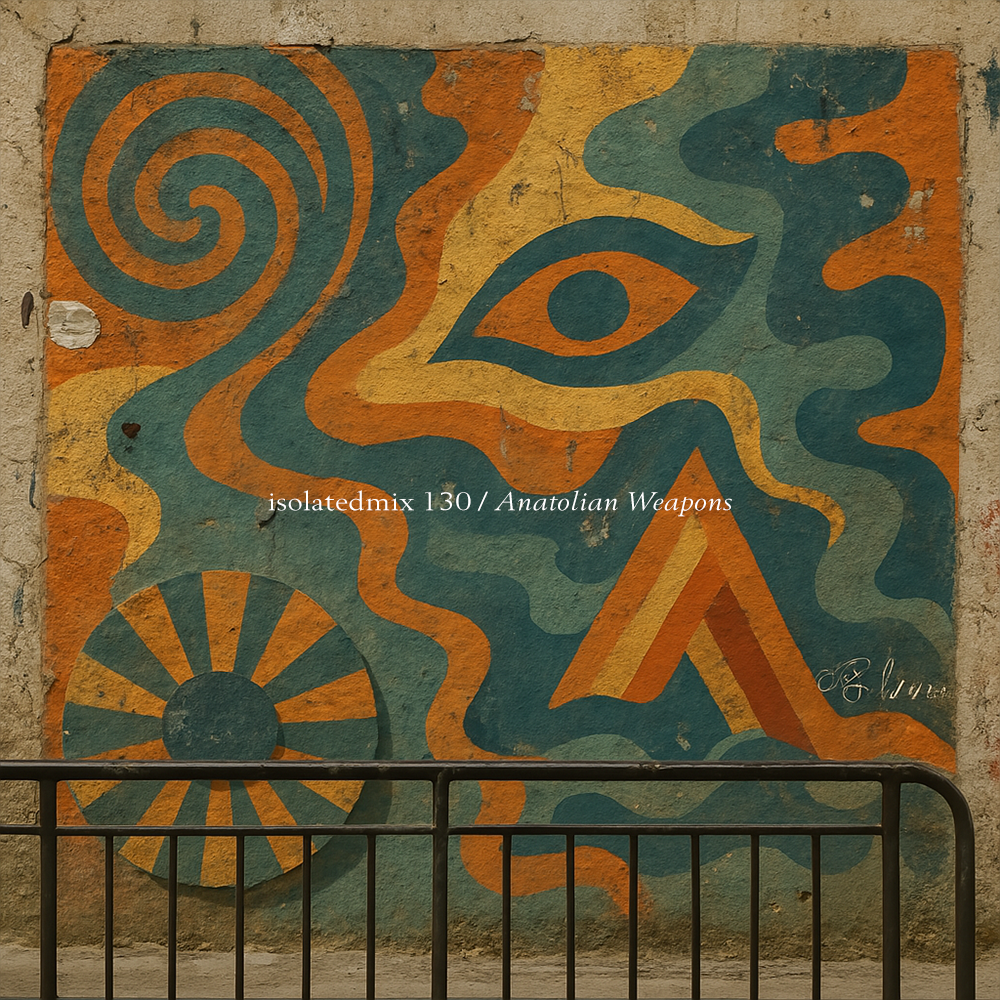
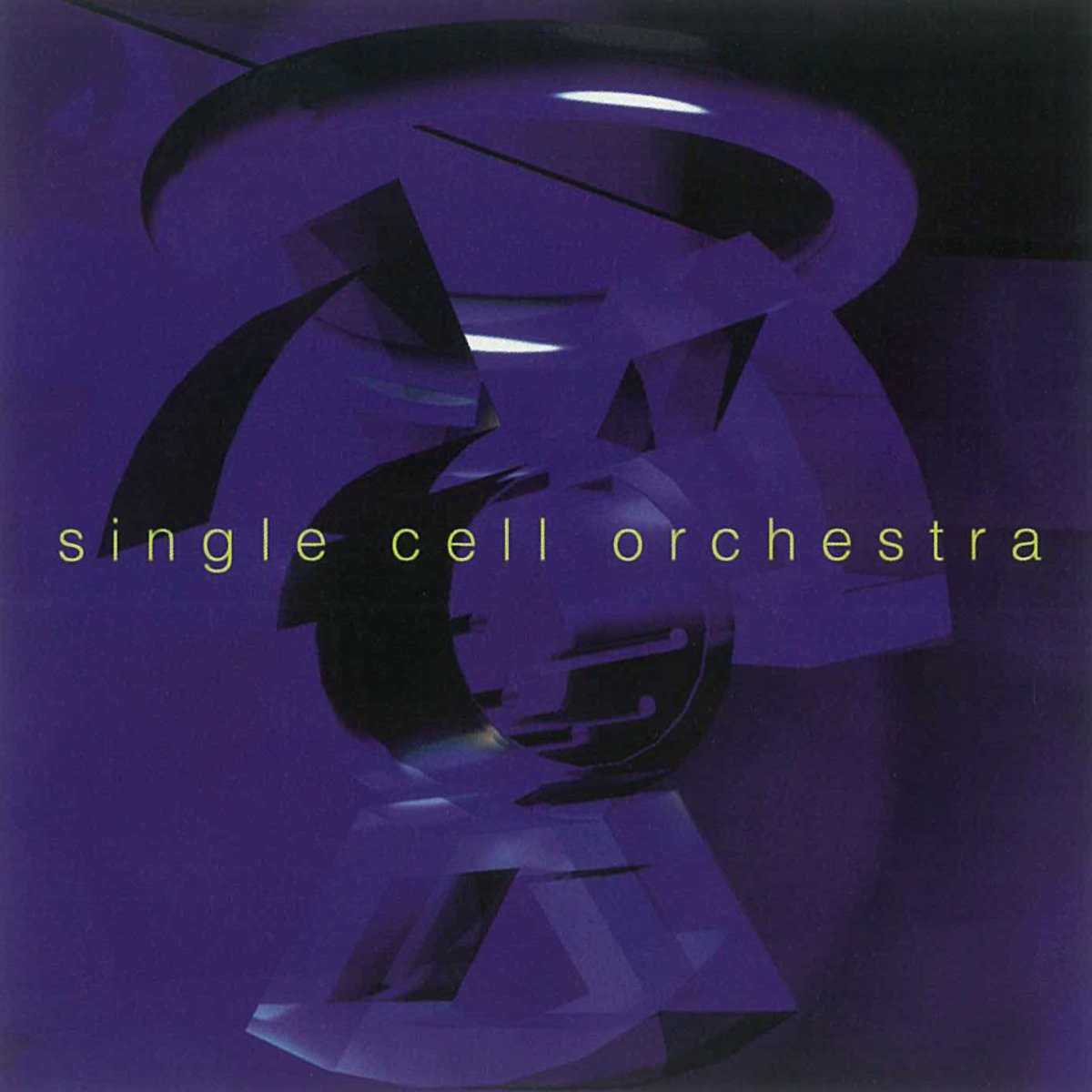
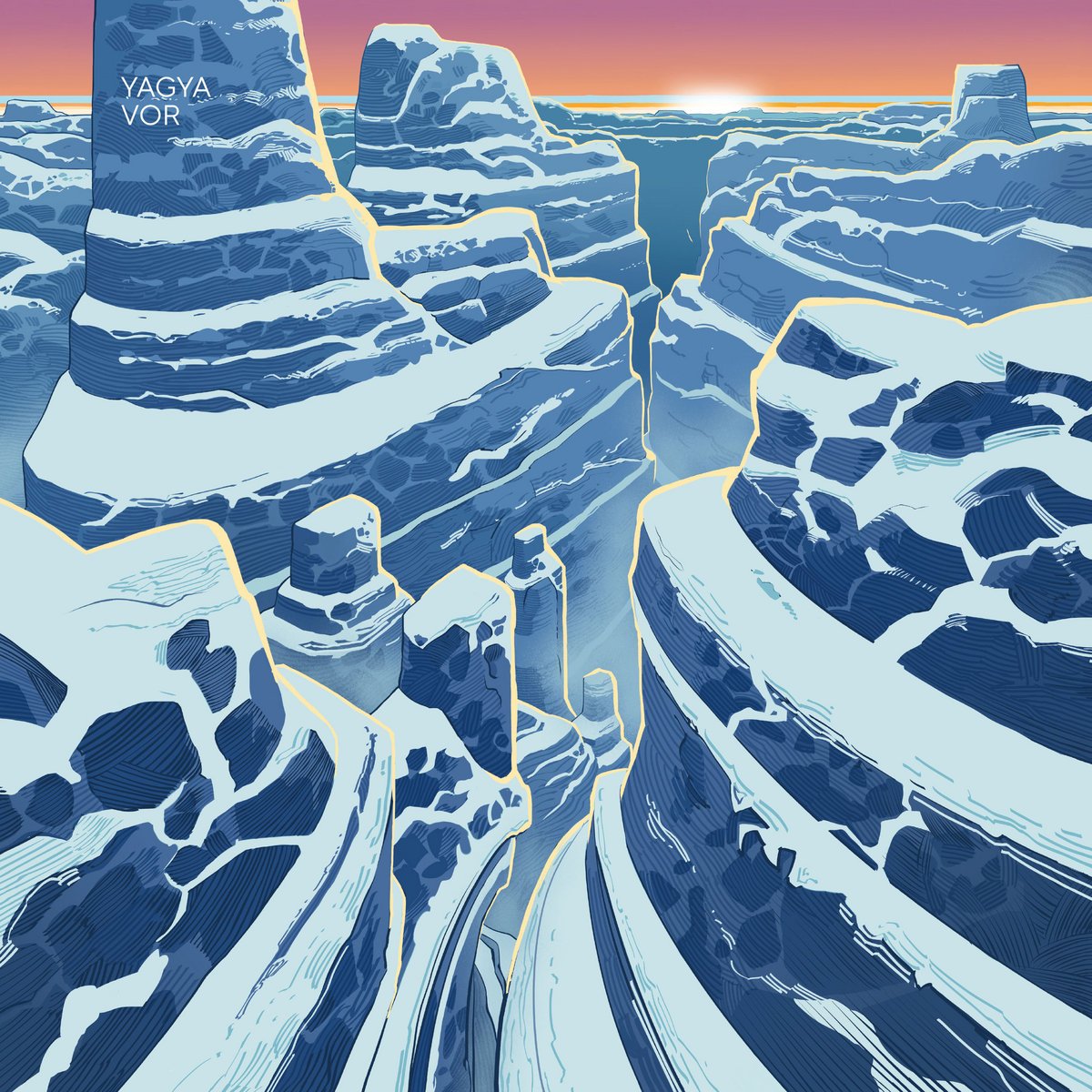
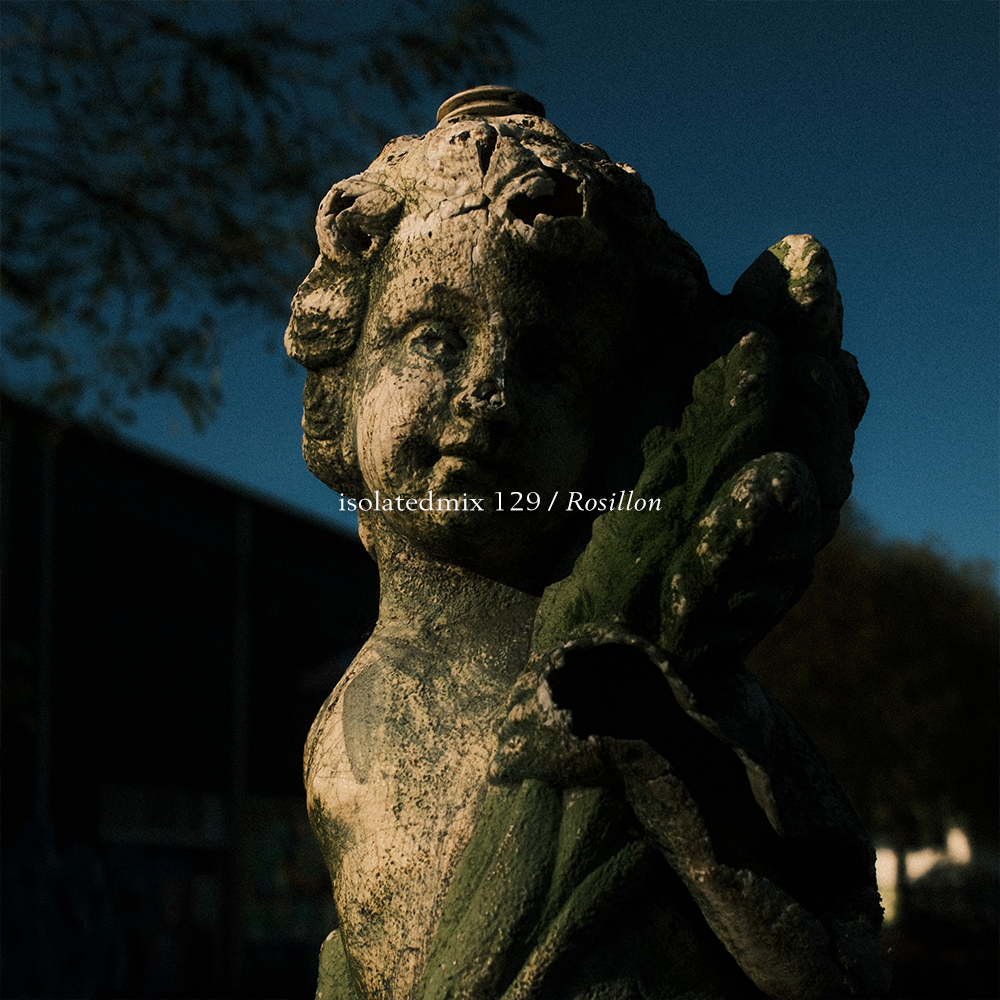

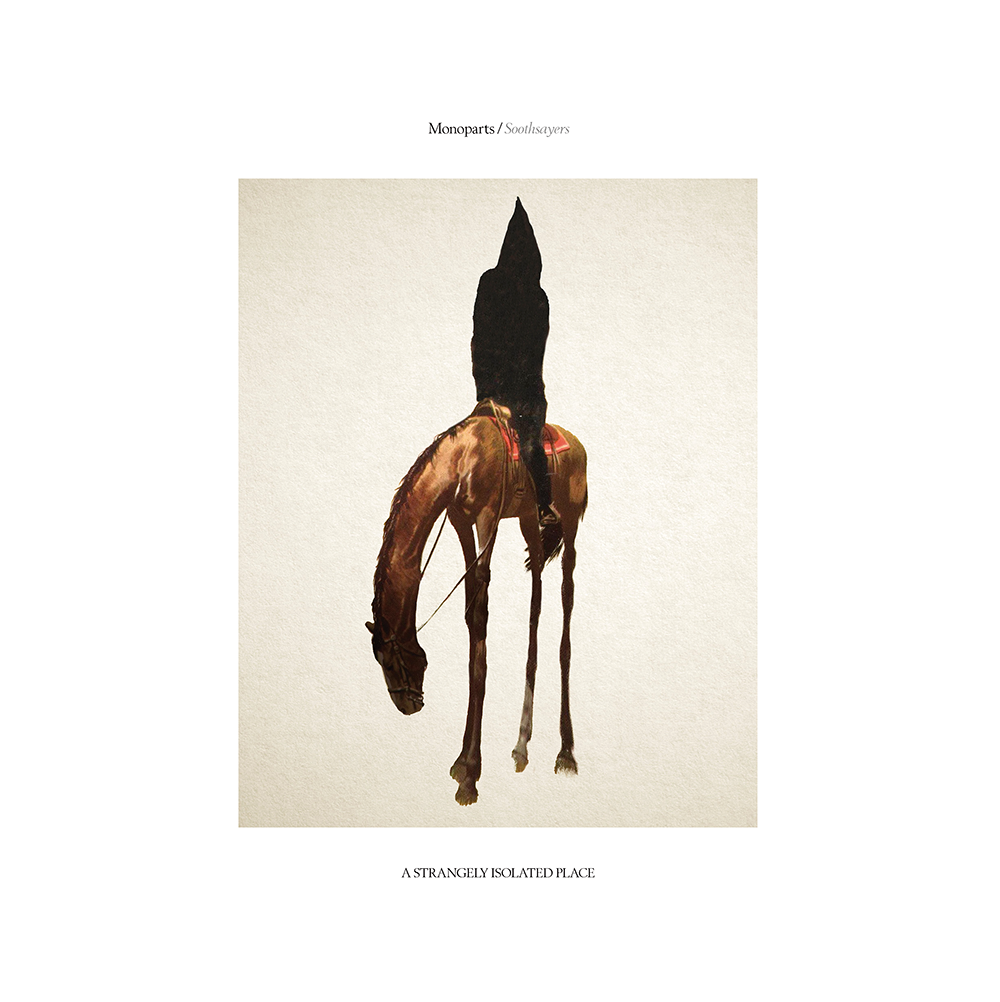
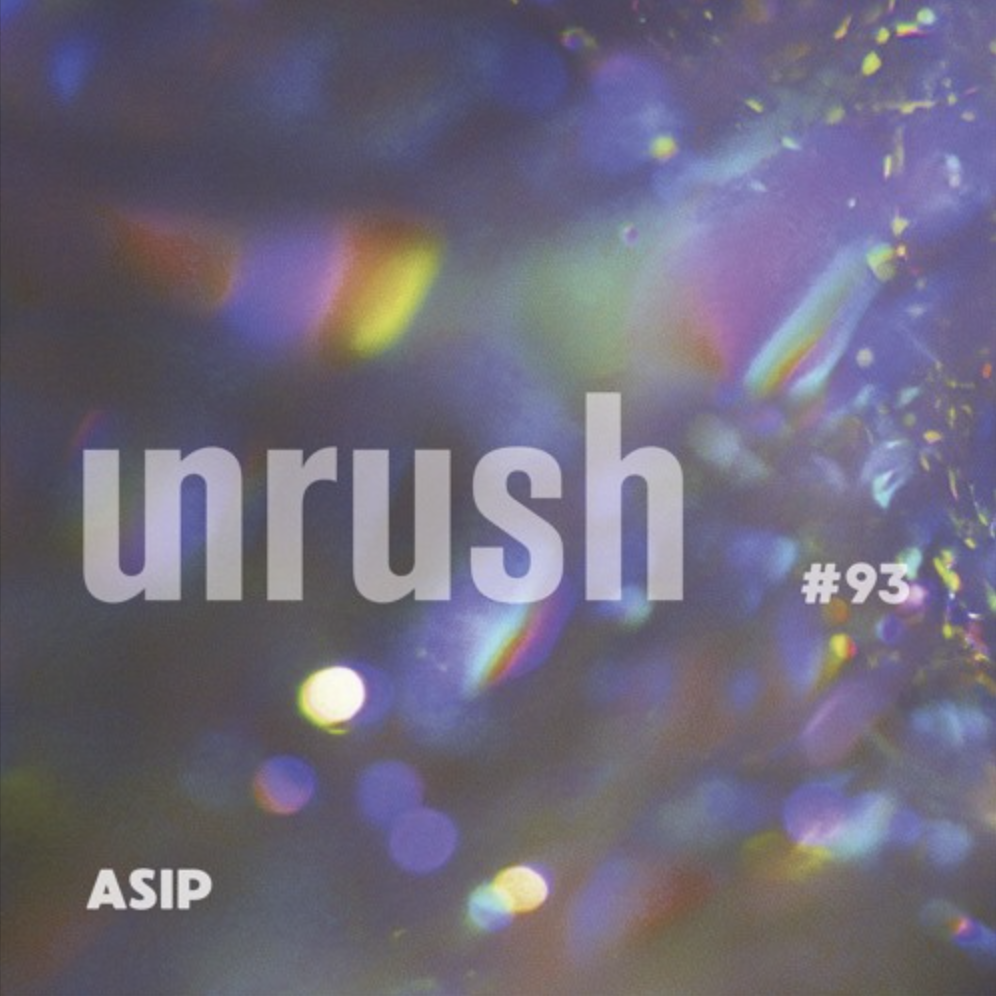


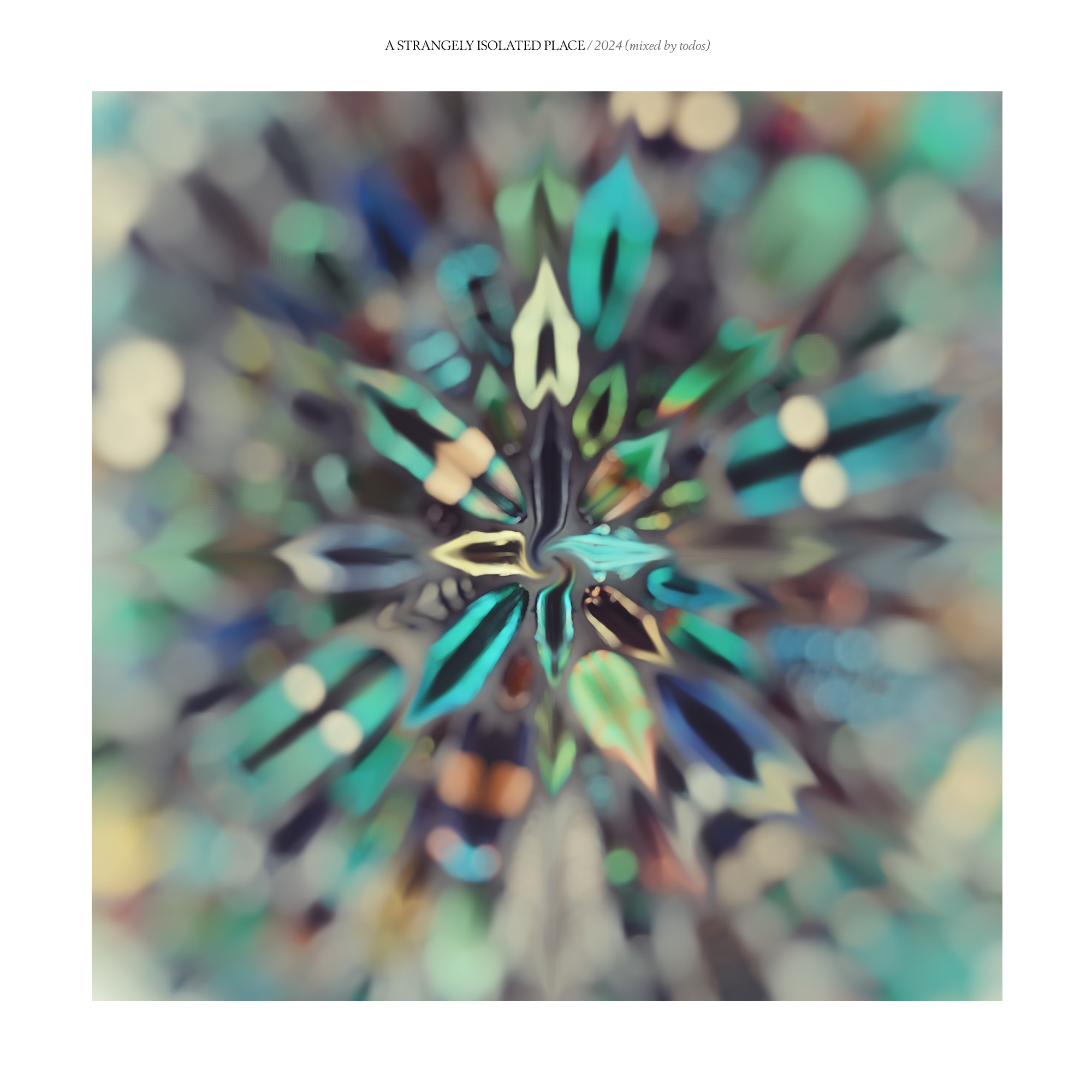






![Keaton Henson - Elevator Song (Ulrich Schnauss Remix) [Forerunners Bootleg]](https://images.squarespace-cdn.com/content/v1/54f7ac3be4b029ca044cd2a6/1529190948980-YRBCL5LOSOPEPTD6PA60/SIGNAL2.JPG)
